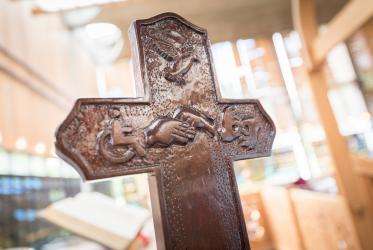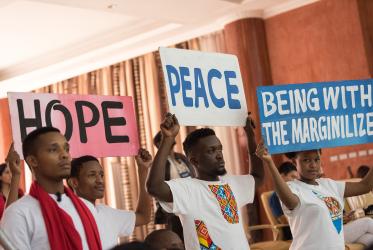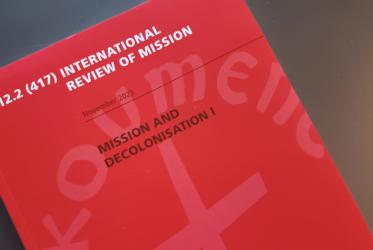The Committee on the Rights of Persons with Disabilities is the body of independent experts which monitors implementation of the UN Convention on the Rights of Persons with Disabilities, and is composed of 18 independent experts. Below, she reflects on her new role, the challenges ahead, and the hope she has for the future.
How do you feel about your new role as chair of the UN Committee on the Rights of Persons with Disabilities?
Fefoame: My election to the chair of the committee is very fulfilling and exciting. I am the first female chair from Africa!
What are the latest challenges for persons with disabilities in today’s context?
Fefoame: Coming out of the COVID-19 pandemic, the floods around the world, earthquake in Türkiye and Syria, the conflicts all around us—persons with disabilities are losing out because we are the last to get information! Within the committee, we are working on how states, civil society organizations including churches and other groups can include people with disabilities to put in all necessary measures to ensure the protection and safety of persons with disabilities in situations of risk, including situations of armed conflict, humanitarian emergencies, and the occurrence of natural disasters.
We are also continuing our work on deinstitutionalization as many states and civil society organizations build institutions for persons with disabilities. It has been observed that institutionalization is not the best. Children with disabilities are best raised in family settings while adults are to be supported to live independently in the community.
Employment at the open labour market including for women with disabilities is another important area we are working on to facilitate implementation. Churches can help support families in raising children with disabilities at home. Sometimes, churches are also involved in rehabilitation and training for employment which should be geared towards employment at open job market with the support such individuals require, including reasonable accommodation.
What can we pray for you as you take on this challenging leadership role?
Fefoame: Please pray for me to have wisdom, the ability to remain humble, the capacity to learn, listen, coordinate, and lead, and the ability to lead people to Christ through my work. Additionally, I ask you to pray for me, my family, my teams at work, so that we can be a great team motivated to work cohesively and accomplish things to God's glory.
What is your hope for the future?
Fefoame: Sometimes religious agencies do not think that human rights are critical and important. I will say that human rights and development are two sides of the same coin. So I would encourage all of us to move toward a model in which we strengthen the WCC by engaging persons with disabilities to define what the issues are, to design how they will be implemented, and to be present for the improvements.
At the WCC, we need to promote the presence of persons with disabilities at all levels and in all discussions. We need intensify our efforts to make sure their voices are heard. We really do have more to contribute to the wellbeing of the WCC and to the world as a whole. If we are offered the spaces to join, we shall contribute more.
Learn more about the WCC's Ecumenical Disability Advocates Network







